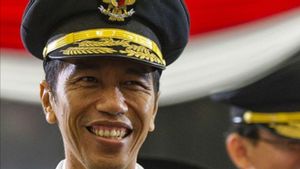YOGYAKARTA - We have heard two recent announcements from the world of technology. Arvind Krishna (IBM) and Sandeep Mathrani (WeWork) were appointed CEOs of each company. This follows a series of leaders of Indian descent who have become CEOs of top global companies in recent years. Why are many Indians CEOs?
So why do these companies continue to hire Indians as their CEOs? Is it just a coincidence, or genuine causality driven by certain triggers?
Shantanu Narayen, Adobe
Sundar Pichai, Alfabet
Satya Nadella, Microsoft
Rajeev Suri, Nokia
Renjen Punit, Deloitte
Arvind Krishna, IBM
IDical Sankarang, Albertsons
Vas Narasimhan, Novartis
Ajay Banga, Mastercard
Ivan Manuel Menezes, Diageo
Niraj S. Shah, Wayfair
Sanjay Mehrotra, Micron
George Kurian, NetApp
Nikesh Arora, Palo Alto Network
way C. Paliwal, Harman International Industries
Sandeep Mathrani, WeWork
For those who don't know, so many Indians leading some of the top companies may seem just a coincidence. But, for someone born and raised in the same environment, it's not difficult to see the fundamental forces that play a role here.
Jumlah: Let's finish this curiosity, too many Indians! With more than a billion, the probability is quite high. But, it raises more important questions why now?
Opportunities: Maritime migration, especially to the US, has always increased following the passing of the 1965 Immigration & National Act (US). But, it was years of struggle with most of India's migrants simply trying to build themselves in the western world. The 1990 immigration measures opened the door to Indian students and technology workers. Now that we see more of these leaders emerge, it's just a reflection of the fact that the talented plants of the 1990s are fully ripe!
Focus: For Indian parents lately, it's almost funny when schools try to emphasize the STEM field (more recently STEAM). For Indians, it's always been a no-brainer. When the whole world is confused about what to do with children, Indians are busy producing engineers and doctors. You can call it luck, or be in the right place at the right time, but that worked. Indians are ready to face a technological revolution.
The Analystical Mind & Foresight: Focus on STEM leads to something bigger - the fact that the disproportionate number of Indians is analytical and data-driven. For Indians, metrics are always everything. Whether it's their value in civil service or entry exams, opportunities to enter universities, or being selected in visa lottery, opportunities (of millions) are superimposed against them. That's one reason why many Indians are experts at doing math in their heads, and have a unique ability to absorb and analyze data easily. These leaders are well equipped to predict where the market is going, and have a forward view to look ahead.
Core Materials: For Indians, hard work is not an option. This is the only way to survive. For almost 50 years after independence (1947), most Indians earn enough to meet their needs. They have no choice but to wake up in the morning and put in 200%. It is embedded in Indian DNA, and the results are clear.
Needs for Disruption: In a 5000-year-old civilization, things and beliefs are so well established that gradual changes are not noticed. On the other hand, malfunctioning systems and infrastructure, complicated processes, and bureaucracy make things very difficult. So, innovation is not an option. Indians have to find ways to maximize resources, and it comes in a variety of forms. From the big ideas that are annoying, B-plans that are always there, to everyday 'Jugaad', there's always a way to see everything.
The Psyche: Growing up in uncertainty is not easy. You always expect something or something to be wrong. It is rooted in India's soul and has become a huge asset for Indian leaders. They are much better prepared for unexpected things, survive much better, and are able to see in corners.
Adaptation: According to some people's arguments, forever that Indians (and people of sub-continentals) are some of the easiest to adapt. For Indians arriving in the US, it is much easier to adapt to western practices. In addition, the fact that they are 'trained' to become fast and very good learners in numbers. You get someone who adapts quickly and has logical ways to explain why he knows things better than others. Most likely you know an Indian friend who is a footballer (American Football), and know more statistics than anyone in the group. Well, now you know why!
Work/Life: Work/Life balance has become a major topic in the western world as cultural and technological norms continue to obscure the boundaries between work and personal life. This is a new trend for the western world, but not for Indians. For them, home and work always go hand in hand. It is much more difficult for Indians to set boundaries, and it is much easier to work hours. When working is worship, it becomes the center of your existence.
The End of Discrimination: Since employees demand leadership diversity, it has become a major problem for large companies. More important than the trend, it is a change in the process of thinking of past leaders and existing leaders who have committed to ending discriminatory practices and providing opportunities for diverse leaders. When it comes to these sub-groups, not many ethnic groups are of higher quality!
So after knowing why many Indians have become ceo, watch other interesting news on VOI, it's time to revolutionize news!
The English, Chinese, Japanese, Arabic, and French versions are automatically generated by the AI. So there may still be inaccuracies in translating, please always see Indonesian as our main language. (system supported by DigitalSiber.id)













